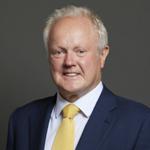Cancer: Young People
(asked on 3rd June 2025) - View SourceQuestion to the Department of Health and Social Care:
To ask the Secretary of State for Health and Social Care, what steps the NHS plans to take to improve (a) awareness and (b) training for (i) GPs and (ii) frontline healthcare professionals to help (A) recognise and (B) refer suspected cases of cancer in teenagers and young adults.
The Department is committed to getting the National Health Service diagnosing cancer earlier and treating it faster to improve survival rates, including for children and young people. To achieve this, the NHS has delivered an extra 40,000 operations, scans, and appointments each week as the first step to ensuring early diagnosis and faster treatment.
General practitioners (GPs) are responsible for ensuring their own clinical knowledge remains up-to-date and for identifying learning needs as part of their continuing professional development.
All registered doctors in the United Kingdom are also expected to meet the professional standards set by the General Medical Council (GMC). In 2012, the GMC introduced revalidation, which supports doctors in regularly reflecting on how they can develop or improve their practice.
The training curricula for postgraduate trainee doctors is set by the Royal College of General Practitioners (RCGP) and has to meet the standards set by the GMC. The RCGP provides several resources on cancer prevention, diagnosis, and care for GPs, relevant for the primary care setting.
On 4 February 2025, the Department relaunched the Children and Young People Cancer Taskforce to identify tangible ways to improve outcomes and experiences for children and young people with cancer. The taskforce is exploring opportunities for improvement across genomic testing and treatment, research and innovation, patient experience, and early detection and diagnosis.
The forthcoming National Cancer Plan will include further details on improving outcomes for cancer patients, including for children and young people with cancer, and will highlight how the Department will support the NHS to improve diagnosis rates for people in all parts of England.

